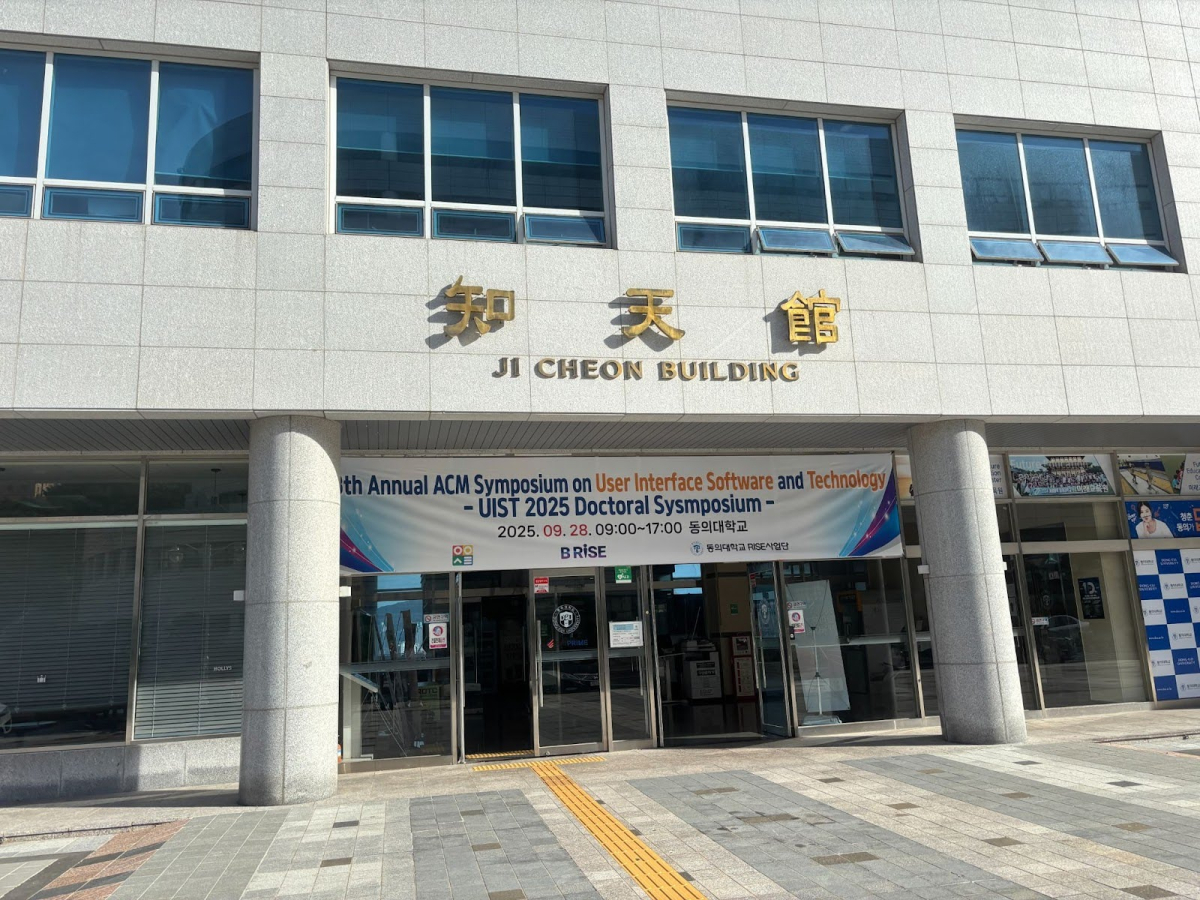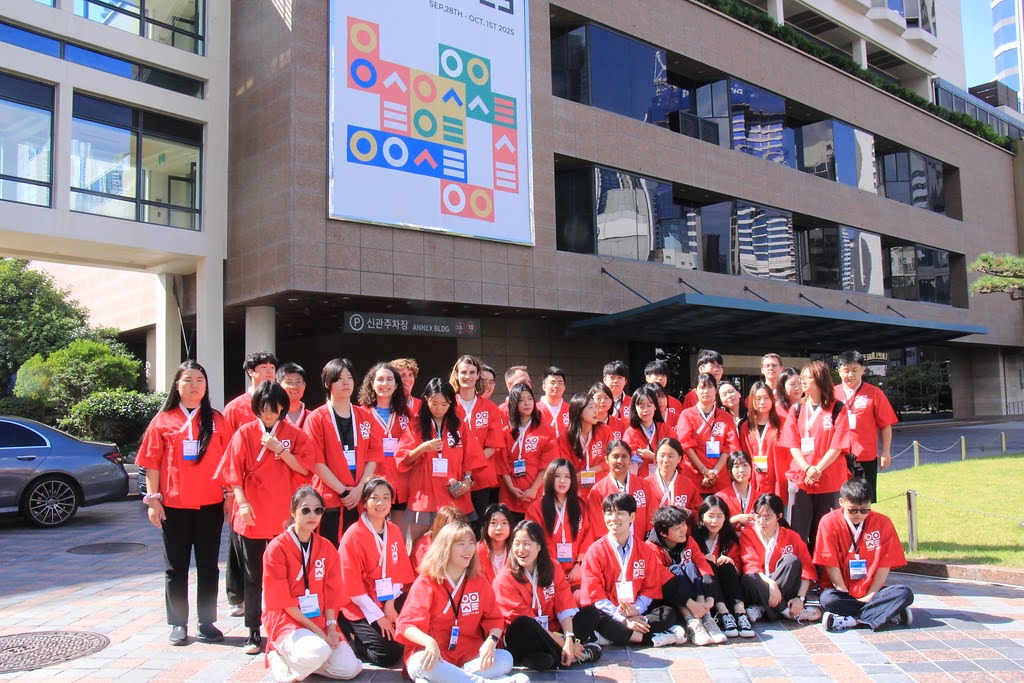By Danli Luo, HCDE PhD student
I had the privilege of attending the ACM Symposium on User Interface Software and Technology (UIST 2025) in October in Busan, Korea. This experience was a significant milestone in my academic career, offering opportunities to present my research, serve the academic community in a leadership role, and expand my professional network as I enter the academic job market. I am grateful for the financial support which made this enriching experience possible.

At UIST, I had the honor of serving as Student Volunteer Co-Chair for the conference. This leadership role allowed me to contribute to the smooth operation of the symposium while gaining valuable experience in conference organization and community building. Coordinating with fellow volunteers and working behind the scenes gave me a deeper appreciation for the collaborative effort required to create meaningful academic gatherings.

Before the main conference, I participated in the UIST 2025 Doctoral Symposium, where I presented my dissertation research on "Building Living Instruments for Scientific Inquiry." This focused venue provided an invaluable opportunity to receive detailed feedback from senior researchers and fellow doctoral candidates. The intimate setting fostered deep discussions about my work's progression from static instruments to living instruments—encompassing sensing with responsive materials, building through biological manufacturing, learning via autonomous systems, and ultimately creating instruments with adaptive behavior, generative capabilities, and evolving interfaces. The constructive critiques and suggestions I received during the symposium will be instrumental in shaping the final stages of my dissertation.
During the main conference, I presented this research again as a poster, which allowed for broader engagement with the UIST community. The poster format facilitated rich conversations about the three key aspects of my work: responsive instruments using responsive materials that sense moisture and execute programmed behavior; growing instruments that program biological manufacturing processes; and autonomous instruments that enable self-driving experiments. These discussions highlighted the mismatch between digital capabilities and physical instrumentation in scientific labs, and the resonance my work found with attendees—particularly those interested in bio-hybrid systems and laboratory automation—underscored its relevance to the future of scientific tooling.
As I am currently on the academic job market, UIST 2025 provided a crucial opportunity to connect with potential colleagues and institutions. Throughout the conference, I actively shared my research vision and career aspirations with faculty, researchers, and industry leaders. These conversations allowed me to explore potential faculty positions, discuss research collaborations, and better understand the landscape of academic opportunities in human-computer interaction and bio-integrated systems. The relationships I cultivated during these discussions will be invaluable as I navigate the next phase of my career.
The experience of presenting work that bridges biological systems, responsive materials, and autonomous experimentation at a premier venue like UIST reinforced the interdisciplinary nature of my research. Feedback from attendees helped me articulate more clearly how living instruments can address the tedious, repetitive, and error-prone nature of laboratory work while enabling new forms of scientific inquiry that take inspiration from living systems' responsiveness, growth, and autonomy.
Attending UIST 2025 allowed me to share my research, serve the community, engage in critical discussions about the future of scientific instrumentation, and build relationships that will support my transition into a faculty position. I am incredibly grateful for the opportunity to attend this conference and to contribute to the vibrant scholarly community at UIST. This experience has reinforced my commitment to developing innovative tools that transform how we conduct scientific research and my excitement about continuing this work as an independent researcher.
Give to support HCDE student travel
The Mary B. Coney Endowed Fund, named in honor of Emeritus Professor Mary Coney, supports HCDE students by funding costs associated with travel to conferences and international workshops. Your support of this fund enriches the HCDE student experience and enhances HCDE's influence in the field.